Meet .CHISARAOKWU. (Chisara Asomugha, MD, MSPH, MHS)
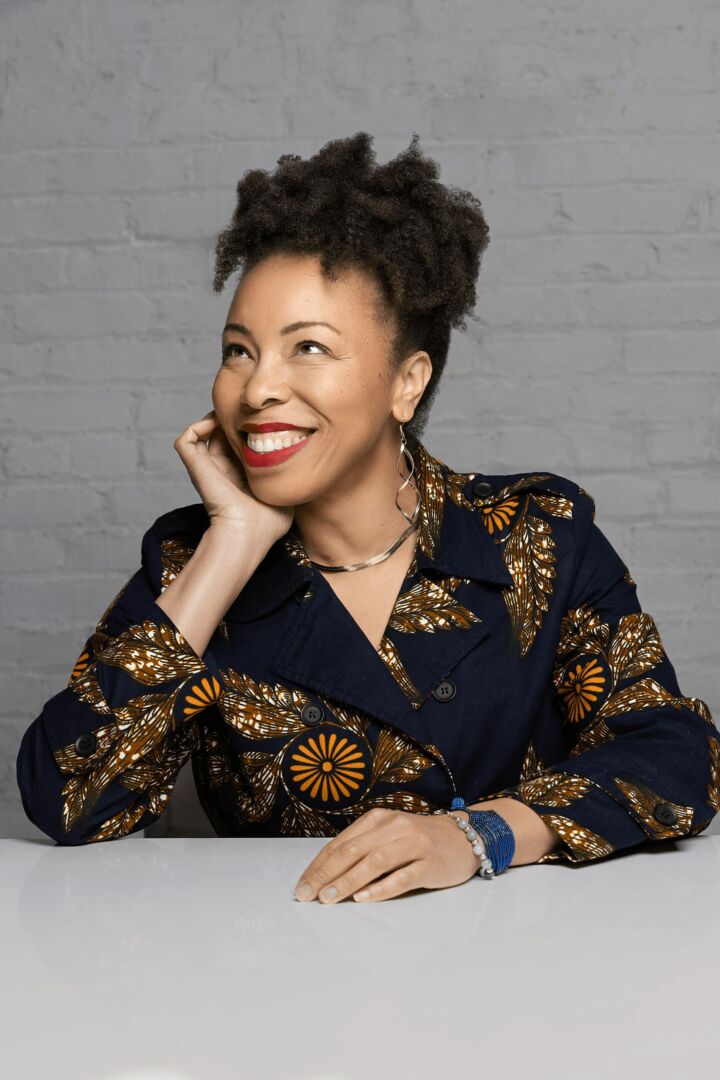

We had the good fortune of connecting with .CHISARAOKWU. (Chisara Asomugha, MD, MSPH, MHS) and we’ve shared our conversation below.
Hi .CHISARAOKWU., is there a quote or affirmation that’s meaningful to you?
“Be your first ‘yes.'” You want to draw that tree, do it! You want to write that novel, do it! You want to change careers in the middle of a pandemic, do it! Say “yes” to yourself; be open to the unfolding. The corollary to being your first “yes” is to never be your first “no.” Don’t count yourself out just because you think others might. You actually don’t know!
“Be your first ‘yes,’” came to me when I joined the 100 Rejections Club in a Facebook poetry group. My first year, my work received 52 rejections (out of 99 submissions). Though I didn’t reach 100 rejections like many of my peers, I knew that my work was being seen and read. I also recognized that rejections aren’t necessarily about the work but about the “fit” with the journal’s needs. Every submission became a way of saying “yes” to myself as an artist and to my practice. Instead of shutting the door on my own dreams and passions, I took rejections as an opportunity to grow, create, and share. So, I just kept saying yes; and, soon a chorus of artists and supporters of the arts started saying “yes!” with me. That first and persistent “yes” to myself has led to wonderful opportunities in the US and overseas to create and share my work with others. It’s also allowed me to lean into more risk-taking; every “yes” builds faith, trust, and confidence. If you do something with your whole chest and are open to the process, it’s easier to deal with rejections and setbacks. (Note I said, “easier,” not easy, LOL.)
There’s an Igbo proverb that says, “Onye ekwe, chi ya ekwe.” This loosely translates to “If you say yes, then your chi (god) will say yes.” But you have to say yes first! So, yeah, even though change is constant and life unpredictable, there’s something steadying, affirming, and aligned about being your first yes.
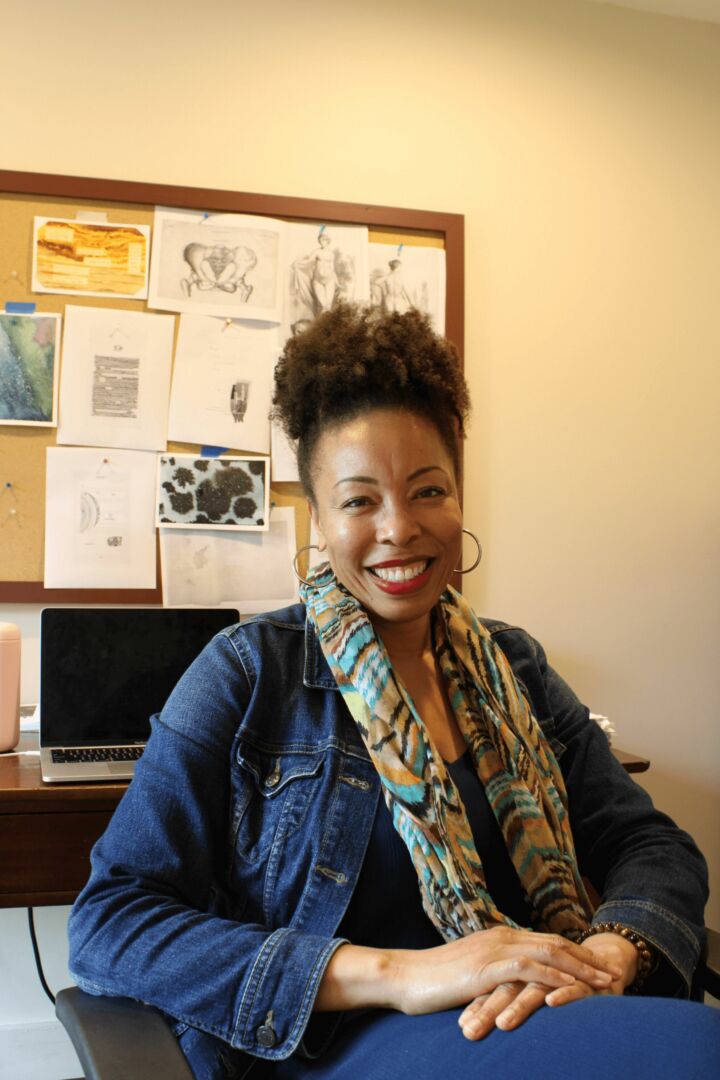
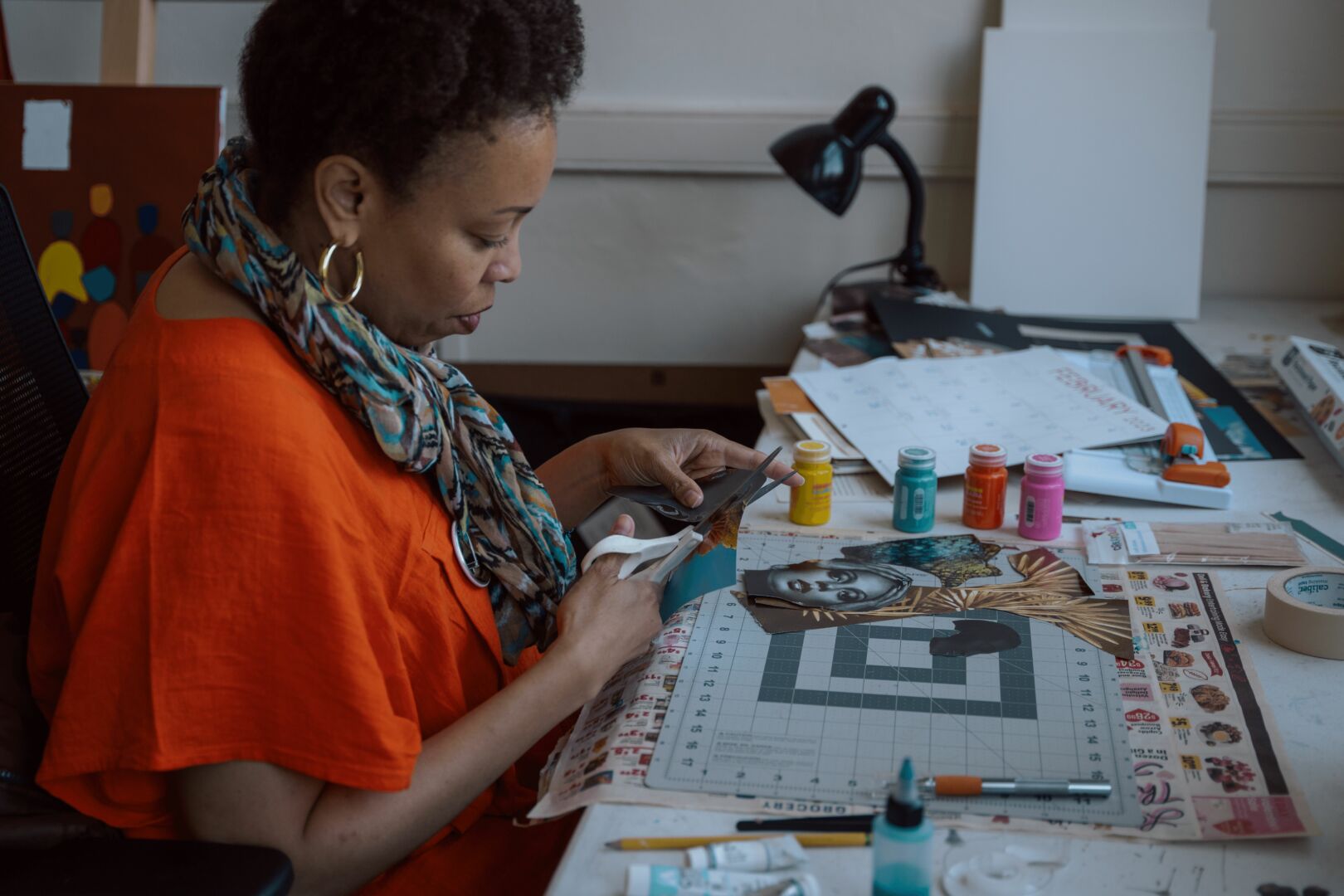
Can you open up a bit about your work and career? We’re big fans and we’d love for our community to learn more about your work.
Today, I consider myself an artist of text, pigment, motion, and textures, though I don’t limit myself in my artistry or practice. The work I create is inspired by my Igbo heritage, the natural world, my obsession with history, science/quantum physics, and my previous work as a pediatrician, researcher, and trauma specialist. I’m very interested in re-presenting stories of Africa and its diaspora that have been omitted, erased, or misrepresented in euro-centric archives. I’ve always loved our stories. I remember my parents gathering us in the evening to share stories that they grew up with in Nigeria. In college, I wrote a paper on the life-history of women who lived through the Biafra War, using an interview with my mother as the primary text to shape that paper. So I’m not surprised that one of my current projects is a poetry collection based on subsequent interviews and archival research I’ve done about that same war. It’s taken me a while to get to this point of full-time artistry. I trained and worked as a pediatrician, then a deputy mayor, before heading to DC to serve in the federal government as a senior advisor on healthcare policy during the Obama years. Through each of those stints, my art practice kept saying “Feed me, feed me.” I’d try with little stints on the theater stage, or do oil paintings for fun, write and perform poetry. Until one day, during a life-changing trip abroad, I agreed, and decided to feed it a full meal. (I’m still feeding it.)
Was it easy to transition from the stability of a career in medicine (pre-pandemic) to the wild and winding path of artistry in the United States? Yes. Once I prioritized my joy and well-being over what looked good to others. If not for that, I would still be caught up in common societal measures of success. The harder part is facing the unknown and asking for help. Negative tropes about artists abound; but they say more about society than they do about artists. We are not poor, starving, or reckless. Nor do we want to be! We are pioneers, activists, game-changers. (The pandemic taught the world that.) We do not art in isolation. We do so in community with support. Support is critical. I do believe the US (socially, culturally, politically) could do more to support artists. Current structures feed into the negative tropes; so unless you have some privilege (which I recognize I do) it is difficult to maintain a sense of calm while you try to make rent, tend to your health, do shift work, and make art. One thing I’ve learned is this– as you embark on any path or practice you still have to answer the questions: do I like it, am I good at it, am I willing to grow in it, can I live with its perks and its challenges? If you’re able to say “yes” to those four questions you’re in a better position to move an idea, dream, or passion forward.
In addition to realizing that all career/life paths ask of us the same questions, I learned that openness and risk-taking always gives you an advantage. For example, what I spoke about earlier regarding rejections. After a while, I realized I’d become complacent with routine yet expected different results. I interrupted the cycle and asked myself, “What do I really want to do with my art?” Then I asked a more important question: “What does my art want to do?” Honest answers led to more (and different) opportunities for exploration and development of my practice. It’s easy to focus on what everyone else is doing or saying, or even expecting of you. It may seem the easy way forward but it’s not. It keeps you from doing you, from saying “yes” to yourself.
Most important thing for the world to know about me: I’m here for life and for love. And when my life and love is done, may the work I did continue the life and love I lived.
Let’s say your best friend was visiting the area and you wanted to show them the best time ever. Where would you take them? Give us a little itinerary – say it was a week long trip, where would you eat, drink, visit, hang out, etc.
Great question, seeing as my bestie is about to visit me in LA! I grew up by the beach and spent most of my adult life outside of California, so my itinerary reflects my re-learning LA and it’s vibe.
Recently, I was in DTLA on jury duty and someone suggested Grand Central Market for lunch. After scoping out the market, I decided on a fish burrito from “Roasted To Go.” Lisssen! Best tasting burrito I’ve ever had! Was it a one-off? I don’t know. But whatever seasoning the cook put on the fish, the beans, the rice, the everything, that day was PERFECT! So yeah, Roasted To Go!
Where else?
We’d start at Hermosa Beach – my favorite beach in childhood – then swing by Manhattan Beach Library for its view! Maybe hit the trail at Stoneview Nature Center which takes you to the beach! We would definitely go to Leimert Park, specifically Art + Practice Exhibition Space (California African American Museum). They have wonderful exhibitions and great staff. If we’re still in DTLA, I’d swing by the Broad or the Museum of Contemporary Art for inspiration. They also have free admissions! Heading back to the South Bay, we could end the day with an Arnold Palmer at The Yellow Vase in RPV which has a great ocean view and euro-cafe sort of vibe that reminds me of my time in Italy (altho, The Yellow Vase is definitely French).
Outside of LA, I’d definitely roadtrip to Joshua Tree National Park and the Mojave Desert. The California desert is magic! I always find inspiration there.
My best days in LA, however, are the quiet ones at the beach or in the mountains near the deserts. We are lucky to have both.
Who else deserves some credit and recognition?
I love this! Let me shout out my mom real quick! She has been my greatest support during my transition into the arts with her wisdom and care. I definitely wanna shoutout my entire NYC poetry family Brooklyn Poets, Cave Canem, and especially my big sis JP Howard and the group she founded called Women Writers in Bloom. She was the first to welcome me with such openness and care into the great wide poetry family. They gave me space to grow as a poet and artist. There are so many more; but yeah, all of them matched my “yes” with a “yes” of their own. How they see me and hold space for me is a special kind of love and care.
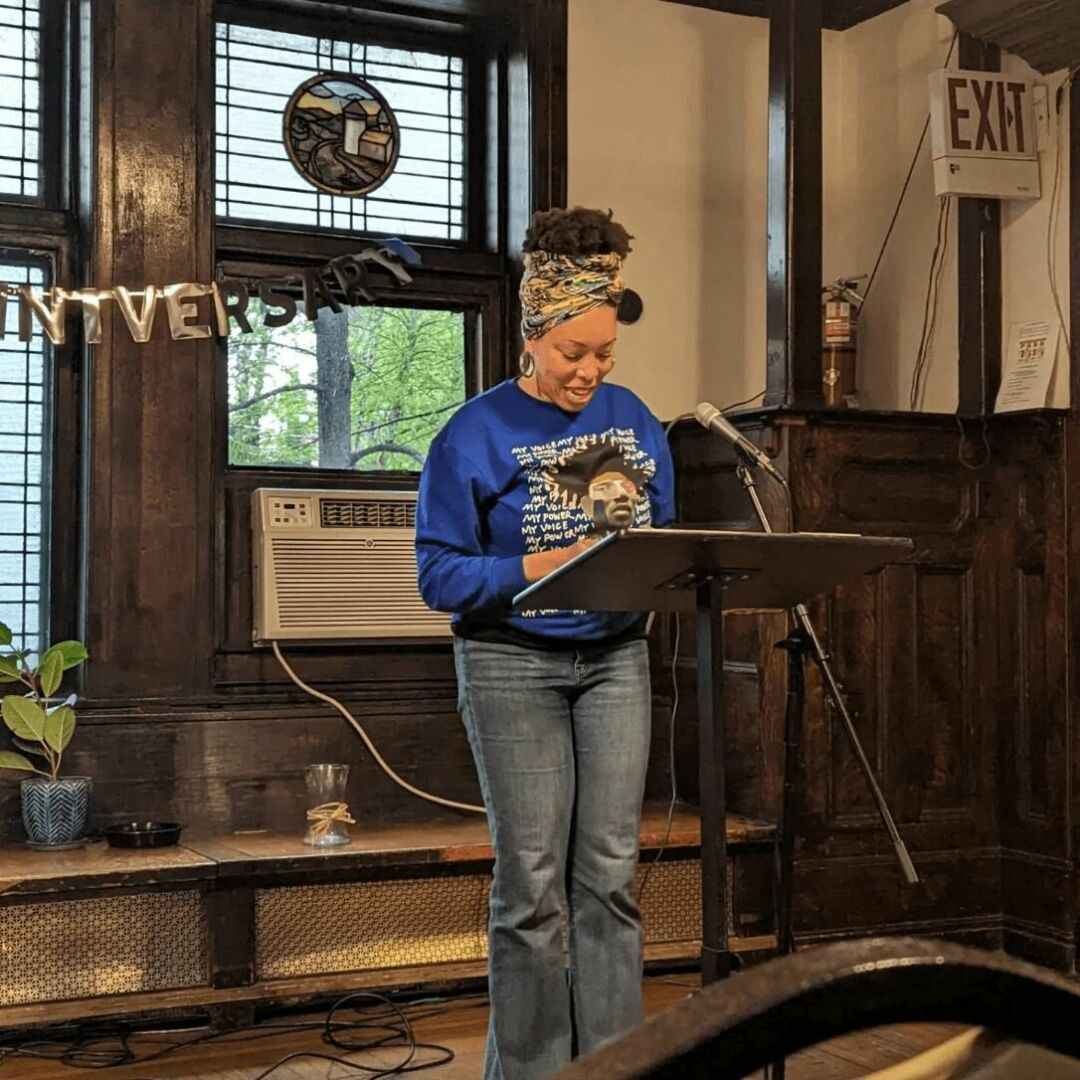
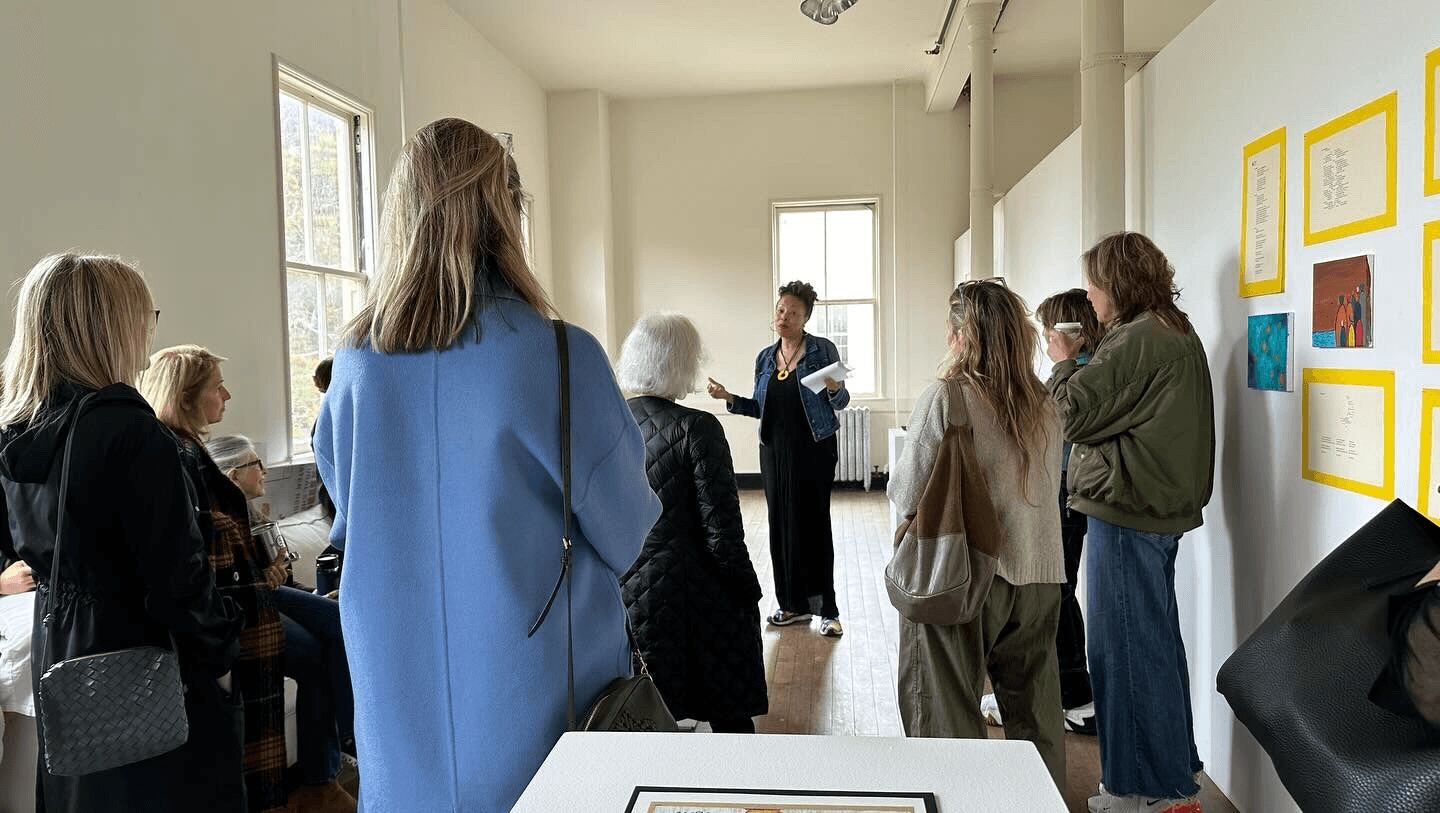
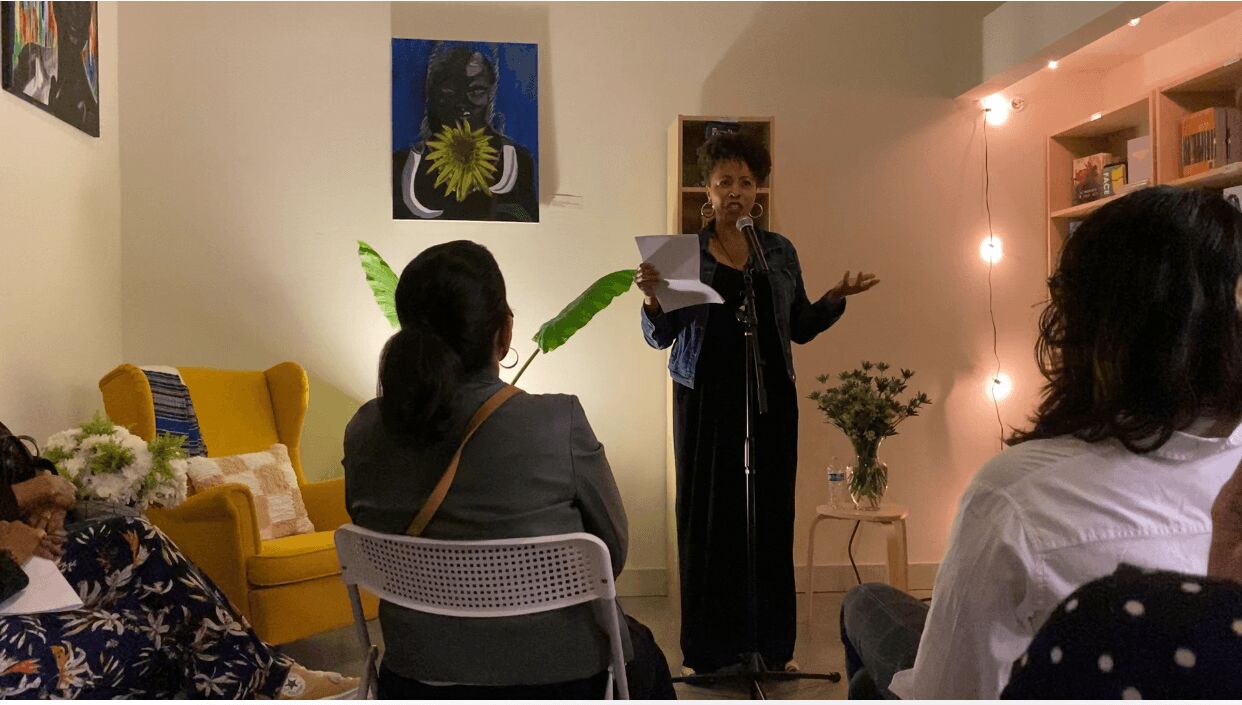
Website: www.chisaraokwu.com
Instagram: @naijabella | @livejoywell
Facebook: @ChisaraAsomugha
Image Credits
Author Photo/Personal Photo: Argel Rojo, Courtesy of Los Angeles Performance Practice Photo of me in orange in my studio: Tom Ide, Courtesy of Headlands Center for the Arts Photo of me and others standing during Headlands Center for the Arts Member Visit: self Photo of me seated with denim jacket at my studio at Vermont Studio Center: Leila Bandar, Courtesy of Vermont Studio Center Photo of me in jeans behind the mic at 2023 NYC poetry event: self Photo of me reading at the mic (others seated) at Anaphora Arts, Los Angeles: self
